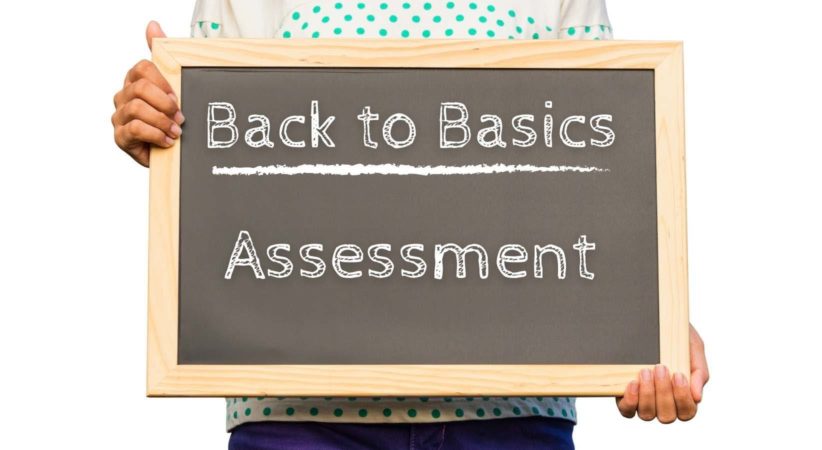
Back to Basics: Assessment
Welcome to our Back to Basics series! In this series we explore some of the foundational methods, practices and terminology for teaching reading and writing. This series is for those new to the field of literacy, beginning tutors or those who would just like a refresher. This week we discuss assessment.
Tutors rely on assessments to match learners with the best strategies and resources for their individual needs and track their progress throughout the tutoring sessions.
“Each new adult learner comes with their own strengths and areas for improvement regarding literacy. Assessments help you uncover what they already know, how well they know it, and where they require extra support.” – ABC Life Literacy Canada
The term “assessment” often reminds us of formal exams commonly conducted in the school system. However, assessment can take many forms. Beyond formal testing, assessments can include informal activities such as observation, checklists, inventories, portfolios, self evaluation, or discussion. Assessments can also take place before, during and after the literacy program.
Initial Assessment
The first assessment a tutor conducts is the initial, or intake, assessment. Often this will involve an interview with the learner. Most tutors will try and make this assessment as brief and stress-free as possible. Some examples of initial assessment tools are:
- A quick screening tool, such as the Common Assessment of Basic Skills by Judith Fox Lee & Rose Strohmaier.
- Examples of tasks learners can do at the end of level.
- An online assessment tool such as the Essential skills indicator.
- Reviewing a sample of the learner’s writing.
During the Program
In order to monitor the student’s learning and adjust as necessary, tutors will make continual assessments throughout the program. Some tips from Frontier College for making these assessments are:
- Assess often, using a variety of tools that are developmentally and culturally appropriate.
- Match the assessment to the chosen learning approach and strategies.
- Set the evaluation criteria that reflect what you have worked on.
- Be fair and respectful of the learner.
- Use both formal and informal methods.
- Use authentic contexts or real material such as an actual phone bill or newspaper article.
Final Assessment
The final assessment will demonstrate the progress the learner has made as a result of the literacy program. Ideally, the final assessment (as well as the ongoing assessments) will show that the learner has achieved their goals for the program set out in the initial assessment. If a progress checklist was created for the learner, now is a good time to review it. The final assessment can also take the form of a discussion. The tutor and learner can talk about what was learned, where the learner may go next and how they may get there. The tutor may also ask the learner to complete a final reflection worksheet. Finally, an exit interview can be conducted. This can be combined with the review of the checklist and reflection. However, the interview should also include feedback from the learner about the literacy program.
To learn more about why assessment is important and the different methods for conducting assessments, check out the resources listed below.
Resources
- 4 literacy assessment tools for adult learners
- Canadian adult reading assessment (CARA): Instructor’s Manual and Student’s assessment booklet
- Diagnostic adult learning assessment for beginning readers : [kit] (DALA)
- Foundations of assessment
- A Frontier College Tutor’s Guide: Working with Adults
- Intake and Initial Assessment
- The Manitoba Adult Literacy Learner Assessment Guide
Related Blog Posts
Black History Month 2023
February is Black History Month! Find resources to learn about and celebrate black history in Canada.
Literacy in Canadian Prisons
Learn about supporting the freedom to read in prisons.
Back to Basics: Phonics
Welcome to our new Back to Basics series! This week we are discussing phonics.
